
Andraé Edward Crouch was an American gospel singer, songwriter, arranger, record producer and pastor. Referred to as "the father of modern gospel music" by contemporary Christian and gospel music professionals, Crouch was known for his compositions "The Blood Will Never Lose Its Power", "My Tribute " and "Soon and Very Soon". He collaborated on some of his recordings with famous and popular artists such as Stevie Wonder, El DeBarge, Philip Bailey, Chaka Khan, and Sheila E., as well as the vocal group Take 6, and many popular artists covered his material, including Bob Dylan, Barbara Mandrell, Paul Simon, Elvis Presley and Little Richard. In the 1980s and 1990s, he was known as the "go-to" producer for superstars who sought a gospel choir sound in their recordings; he appeared on a number of recordings, including Michael Jackson's "Man In the Mirror", Madonna's "Like a Prayer", and "The Power", a duet between Elton John and Little Richard. Crouch was noted for his talent of incorporating contemporary secular music styles into the gospel music he grew up with. His efforts in this area helped pave the way for early American contemporary Christian music during the 1960s and 1970s.

Bad is the seventh studio album by the American singer-songwriter Michael Jackson. It was released on August 31, 1987, by Epic Records. Written and recorded between 1985 and 1987, Bad was Jackson's third and final collaboration with the producer Quincy Jones. Jackson co-produced and composed all but two tracks, and adopted an edgier image and sound, departing from his signature groove-based style and falsetto. Bad incorporates pop, rock, funk, R&B, dance, soul, and hard rock styles, and incorporated new recording technology, including digital synthesizers. The lyrical themes include media bias, paranoia, racial profiling, romance, self-improvement, and world peace. The album features appearances from Siedah Garrett and Stevie Wonder.
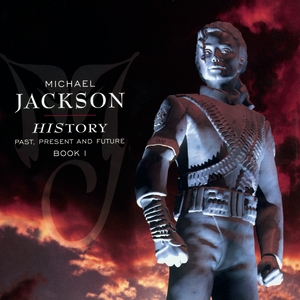
HIStory: Past, Present and Future, Book I is a double album containing the first non-Motown greatest hits album and ninth studio album by American singer-songwriter Michael Jackson, released on June 20, 1995. It was Jackson's fifth album released through Epic Records, and the first on his label MJJ Productions. It comprises two discs: HIStory Begins, a greatest hits compilation, and HIStory Continues, comprising new material written and produced by Jackson and collaborators. The album includes appearances by Janet Jackson, Shaquille O'Neal, Slash, and the Notorious B.I.G. The genres span R&B, pop, and hip hop with elements of hard rock and funk rock. The themes include environmental awareness, isolation, greed, suicide, injustice, and Jackson's conflicts with the media.
The Winans family is a U.S. family of gospel music artists from Detroit, Michigan.
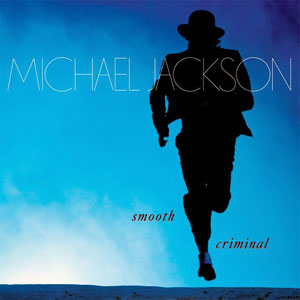
"Smooth Criminal" is a song by the American pop singer Michael Jackson, released on November 14, 1988, from his seventh studio album, Bad (1987). It was written by Jackson and produced by Jackson and Quincy Jones. The lyrics address a woman who has been attacked in her apartment by a "smooth criminal".

"Thriller" is a song by the American singer-songwriter Michael Jackson. It was released by Epic Records in November 1983 in the UK and on January 23, 1984, in the US, as the seventh and final single from his sixth studio album, Thriller.

"Bad" is a song by the American singer-songwriter Michael Jackson. It was released by Epic Records on September 7, 1987, as the second single from his seventh studio album, Bad. The song was written and composed by Jackson, and produced by Jackson and Quincy Jones. It was influenced by a true story Jackson read about a young man who tried to escape poverty by attending private school but was killed upon returning home.

"Earth Song" is a song by the American singer Michael Jackson. It was written by Jackson and produced by Jackson, David Foster and Bill Bottrell. It was released by Epic Records on November 7, 1995, as the third single from Jackson's ninth studio album, HIStory: Past, Present and Future, Book I (1995).

Deborah Christine "Siedah" Garrett is an American singer and songwriter who has written songs and performed backing vocals for many recording artists in the music industry, such as Michael Jackson, the Pointer Sisters, Brand New Heavies, Quincy Jones, Tevin Campbell, Donna Summer, Madonna, Jennifer Hudson among others. Garrett has been nominated for two Academy Awards for Best Original Song, and won the Grammy Award for Best Song Written for Visual Media at the 50th Annual Grammy Awards for co-writing "Love You I Do" for the 2006 musical film, Dreamgirls.

Rodney Lynn Temperton was an English songwriter, producer and musician.

"I Just Can't Stop Loving You" is a 1987 duet ballad by American singers Michael Jackson and Siedah Garrett, and was released as the first single on July 20, 1987, by Epic Records from his seventh album, Bad. The song was written by Jackson, and co-produced by Jackson and Quincy Jones. The presence of Garrett on the track was a last-minute decision by Jackson and Jones, after Jackson's first two choices for the duet both decided against participating. Garrett, a protégé of Jones's who co-wrote another song on Bad, "Man in the Mirror", did not know that she would be singing the song until the day of the recording session. It became her first hit since Dennis Edwards' 1984 song "Don't Look Any Further". Garrett remains known primarily for her work with Jackson to this day.
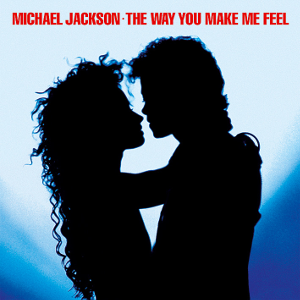
"The Way You Make Me Feel" is a song by American singer Michael Jackson. It was released by Epic Records on November 9, 1987, as the third single from his seventh studio album, Bad. It was written and composed by Jackson and produced by Quincy Jones and Jackson.

"Dirty Diana" is a song by American singer-songwriter Michael Jackson. It is the ninth track on Jackson's seventh studio album, Bad (1987). The song was released by Epic Records on April 18, 1988, as the fifth single from the album. It presents a harder rock sound similar to "Beat It" from Thriller (1982) and a guitar solo played by Steve Stevens. "Dirty Diana" was written and co-produced by Jackson, and produced by Quincy Jones. The song's lyrics pertain to groupies. "Dirty Diana" has a moderate tempo and is played in the key of G minor.

"Another Part of Me" is a song by American singer and songwriter Michael Jackson. Produced by Quincy Jones, it was released as the sixth single on July 11, 1988, for the singer's seventh studio album, Bad (1987). The song was originally featured in Jackson's 1986 3D film Captain EO. It is the sixth song on the album. As with earlier songs in his career such as "Can You Feel It" and "We Are the World", the lyrics emphasize global unity, love and outreach.

"Will You Be There" is a song by American singer and songwriter Michael Jackson which was released on June 28, 1993 by Epic Records as the eighth single from his eighth studio album, Dangerous (1991). Jackson wrote and produced the song with additional production from Bruce Swedien. Originally debuted at MTV's 10th anniversary special, the song gained recognition over a year and a half later due to its appearance on the soundtrack to the 1993 film Free Willy of which it is the main theme. With the album version clocking in at seven minutes and 41 seconds, it is the longest song in Michael Jackson's solo discography.
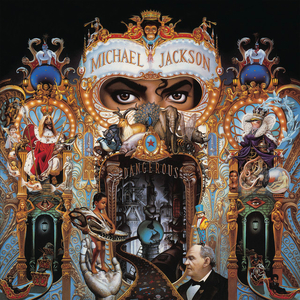
Dangerous is the eighth studio album by American singer-songwriter Michael Jackson. It was released by Epic Records on November 26, 1991, more than four years after Jackson's previous album, Bad (1987). Co-produced by Jackson, Bill Bottrell, Teddy Riley, and Bruce Swedien, the album was Jackson's first since Forever, Michael (1975) without longtime collaborator Quincy Jones. Guest appearances include Heavy D, Princess Stéphanie of Monaco, Slash and Wreckx-n-Effect. The album incorporates R&B, pop and new jack swing, a growing genre at the time. Elements of industrial, funk, hip hop, electronic, gospel, classical and rock are also present. Twelve of the album's fourteen songs were written or co-written by Jackson, discussing topics like racism, poverty, romance, self-improvement, and the welfare of children and the world.

Curtis Stigers is the debut album by American jazz musician Curtis Stigers, released on 24 September 1991 by Arista Records. It includes the hit singles "I Wonder Why", "You're All That Matters to Me", and "Never Saw a Miracle". The album peaked at number seven on the UK Albums Chart in 1992.
Pattie Howard is an American gospel and R&B Singer-Songwriter, Producer, Composer and Vocal Arranger. She is a Grammy nominated music industry veteran who has released two albums with major record labels, RCA Records and Light Records. Howard, who owns her own full service entertainment company, PH Balanced Music, is also known for singing background for many major artists including Whitney Houston, Gladys Knight, Brandy, Mary J Blige, Fantasia, Queen LaTifah, Madonna, Rick Astley, Andrae Crouch, Sandra Crouch, Michael Jackson, Curtis Stiger, Lisa Stansfield, BeBe and CeCe Winans, Reba Rambo, and Diana Ross. She has dozens of gold and platinum albums to her credits encompassing artists from almost every genre. Howard landed one of her most profound gigs traveling the world with Whitney Houston from 1992 to 2001, at the height of her career, The Bodyguard Era. During the early 2000s, Howard returned to songwriting, music production, mixing, and mastering and is currently singing, composing, arranging and producing various artists/bands. In 2016 Pattie released 2 singles through her record label PH Balanced Music. "Jesus Is His Name" introduces Pattie's daughter Shekinah Nicole Howard in a contemporary gospel duet produced by Wow Jones and co produced by Pattie Howard. The second single titled "Feel Me, Heal Me" was also Produced by Wow Jones, written and arranged by Pattie Howard. Pattie Howard is featured in the Nick Broomfield Documentary Whitney Houston "Can I Be Me".
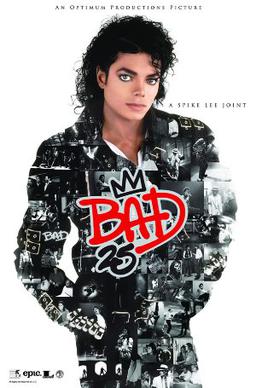
Bad 25 is a 2012 documentary film about the 25th anniversary of Michael Jackson's 1987 album Bad. The film was directed by Spike Lee who previously directed Jackson in the music video for "They Don't Care About Us", as well as directing the posthumous music video for the song "This Is It". A 25th anniversary edition reissue of the Bad album was also released on September 18, 2012, sharing the same name as the film.

Kiss of Life is the debut solo album by American singer-songwriter Siedah Garrett, released in 1988 on Quincy Jones's Qwest Records label.


















